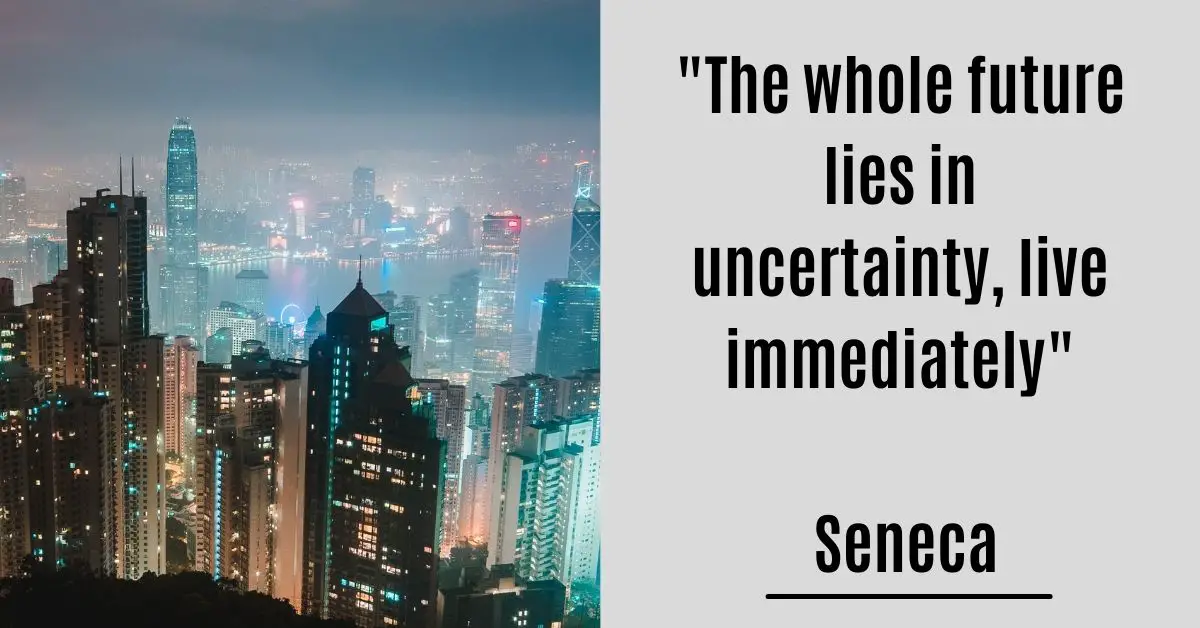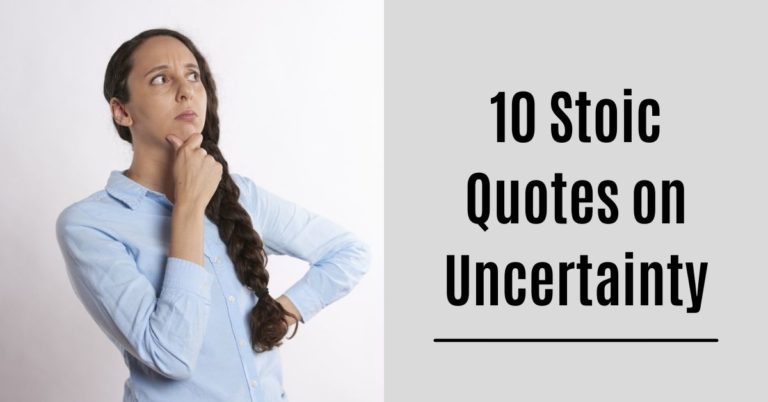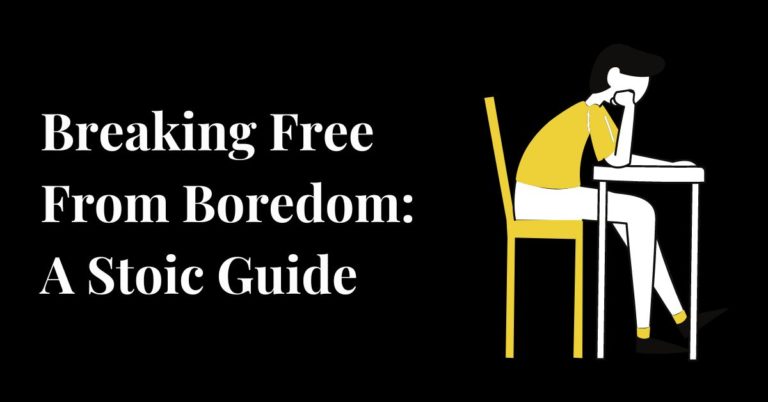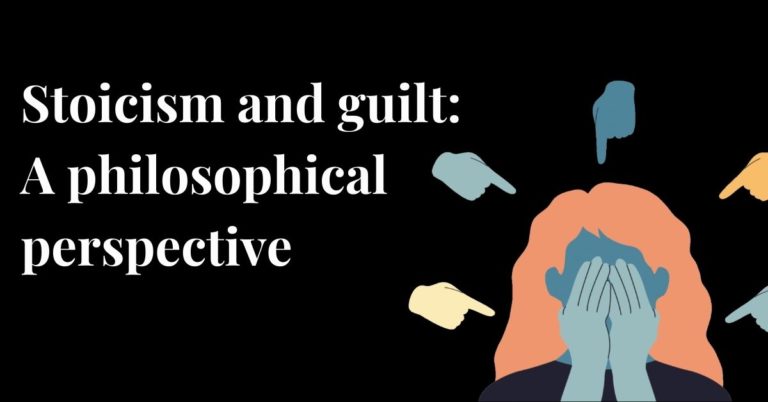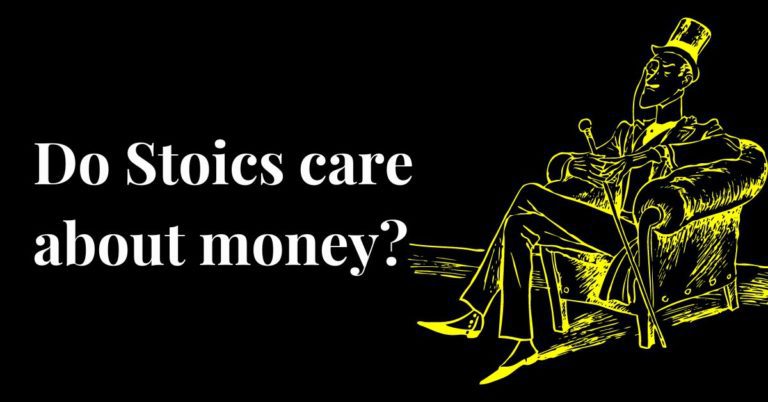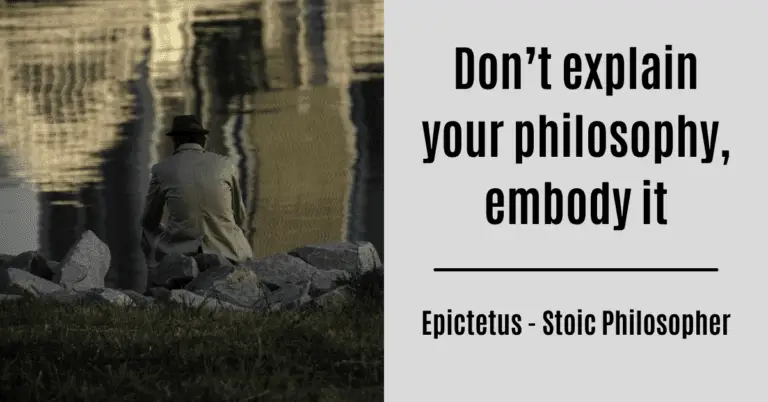“The whole future lies in uncertainty, live immediately” – Seneca
This past month, I’ve been an anxious wreck. There’s been a lot of significant changes going on in my life, and I’ve been stuck constantly thinking about the worst possible future outcomes. There’s a quote from Stoic philosopher, Seneca, which provides me with some ease. It goes like this, ‘The whole future lies in uncertainty, live immediately’. So, it got me thinking
- Why are we as humans obsessed with thoughts about the future?
- What happens to us biologically when these thoughts get stuck there?
- How do we break free and begin to ‘live immediately’ as Seneca says?
Let’s discuss.
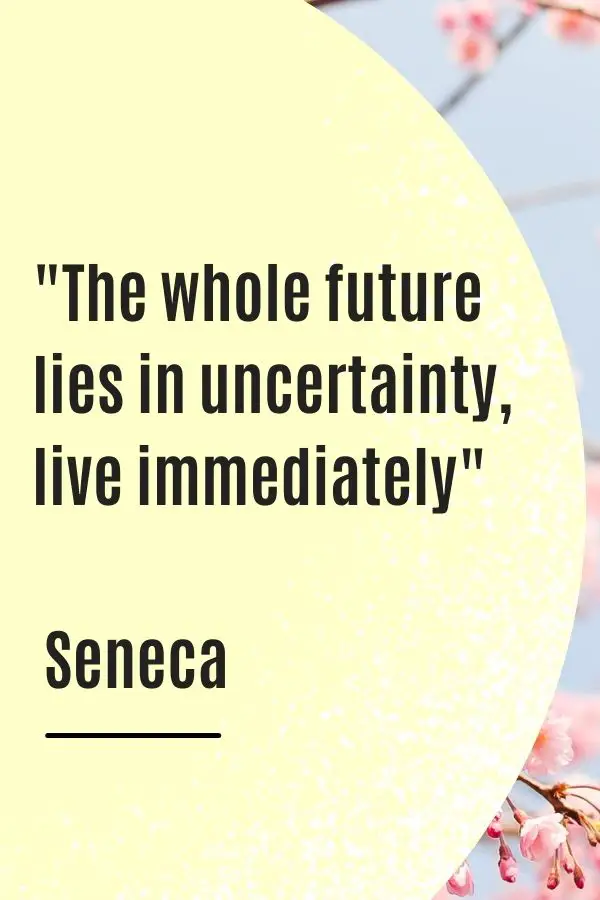
Before we dive into these questions, I thought that it’d be a good idea to share the full quote to provide its context.
“Putting things off is the biggest waste of life: it snatches away each day as it comes, and denies us the present by promising the future. The greatest obstacle to living is expectancy, which hangs upon tomorrow, and loses today. You are arranging what lies in Fortune’s control, and abandoning what lies in yours. What are you looking at? To what goal are you straining? The whole future lies in uncertainty: live immediately.”
Table of Contents
Why are we as humans obsessed with thoughts about the future?
Humans are the only species that we know of that have a special ability called future-mindedness or prospection. In psychology, this is defined as the generation and evaluation of mental representations of possible futures. In other words, we can place ourselves in future scenarios that haven’t even happened yet.
Studies have shown that it has many important uses such as:
- Helping us make decisions
- Motivating us to achieve our goals
- Collaboration with others.
So, having this ability itself isn’t necessarily a bad thing. With all things, it’s how we end up using it that can make it a problem.
For example, I’m in the process of finishing my Ph.D. thesis, and in the coming weeks, I will be applying for jobs. This situation on its own isn’t bad or good, it’s simply a reflection of what’s going on in my life. However, I’ve been using my future-mindedness ability to think up cases of the worst-case scenario.
What if I don’t finish my thesis on time? What if I can’t get a job and can’t afford rent? Why haven’t I finished already? Everything is going to go wrong, and I can’t handle it. These are the intrusive thoughts that enter my mind every now, trapping me into a negative mental loop.
What happens we get stuck in the negative future loop?
When humans perceive a threat, be it physical or psychological, our fight or flight, also known as our stress response, instantly kicks in. What’s even more interesting is that this applies not only to immediate events but also to future events as well.
When we get stuck in negative future loops, our brains perceive this experience as a threat and our stress response goes into overdrive. These include symptoms such as:
- Increased heart rate and breathing
- Agitation
- Inability to focus
- Dizziness
- Stomach problems
“The whole future lies in uncertainty, live immediately” not only works as philosophical advice but also as a biological warning. If you stay stuck on negative perceptions of future events that may or may not happen, then you’re going to chronically overwork your brain leading to the chronic release of stress hormones, leading to the symptoms described earlier.
How to practice living immediately

So, how do we avoid this response? How do we “live immediately”? Well, I believe that this is highly specific to the individual. What might be calming to one person may be a form of hell. So, I’m going to provide two therapeutic ways of staying present. If it helps you, then it’s wonderful. If it doesn’t, then hopefully it will give you an idea of something that will!
Journaling
Never in my life did I think that I would actively use a journal. I always thought that it was some fad where people wrote their thoughts down and that it wasn’t effective at all. However, this couldn’t be further from the truth. Journals allow you to:
- Keep your thoughts organized
- Express gratitude for the day
- Self- reflect on your positive and negative actions
After journaling for a few months last year, I noticed that I was more present in my day-to-day activities. I was more in touch with my emotions and therefore could regulate them better, preventing a future negative loop spiral.
Meditation
I’ll be perfectly upfront. Meditation hasn’t always worked for me, and as I said, that’s okay. However, I know so many people who have been able to live immediately because of it. According to a study, mindfulness meditation and its ability to keep us in the present has been shown to reduce stress and anxiety.
It helps us to acknowledge these negative feelings in the present before they leak into future events. Eventually, using this technique, you can learn to see these thoughts as neither good nor bad, just simple thoughts that can be released.
I don’t think there’s a better way to conclude this post than to repeat the wise words of Seneca for a final time “The whole future lies in uncertainty, live immediately”. Whether you look at it from a philosophical or a biological perspective, these words have the potential to change our lives if we’re willing to listen to its core message.
